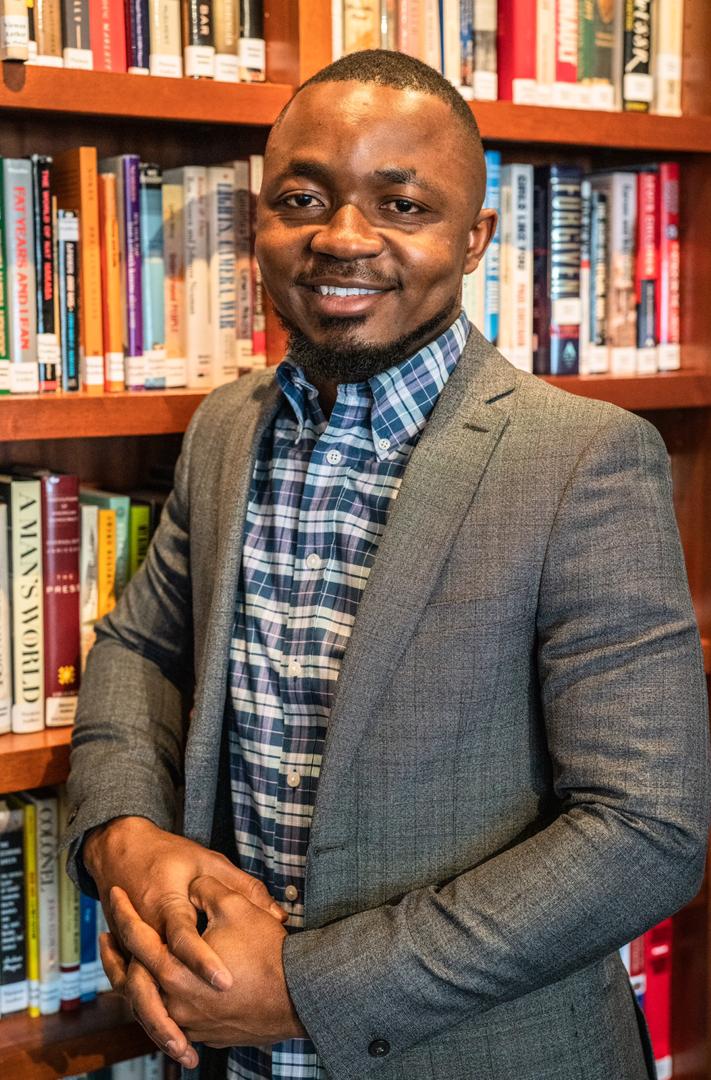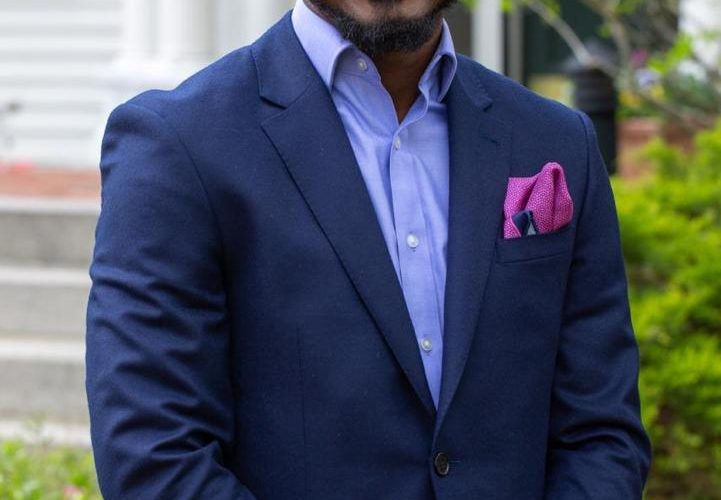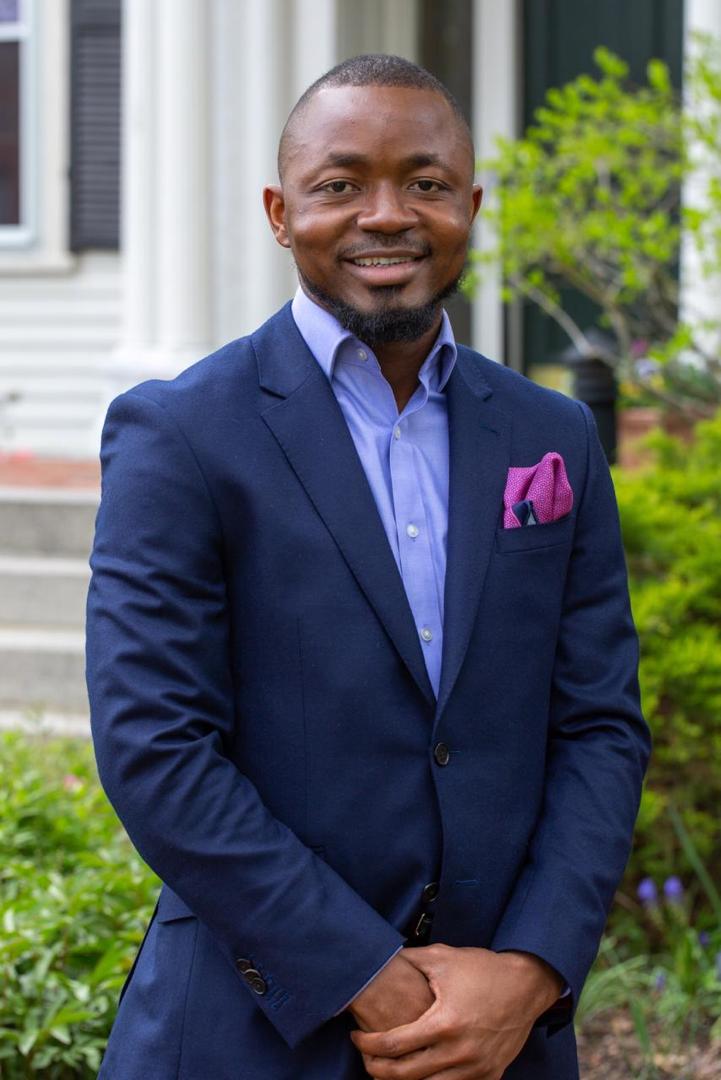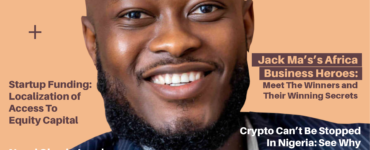Soji Akinlabi’s passion for Africa, African businesses and the business side of media.
Read the excerpt below:
Who is Soji Akinlabi in a nutshell?
It’s a difficult one to answer but if I wanted too; I think I am just a young man driven by the things I have passion for. I am financial journalist, my recently discovered passion is finance. I have been a journalist for more than ten years, I started from TV broadcasting, and then I went into advertising. I also ventured into IT at some point and the reason for that is that I was exploring the business side of media. What people know media to be is beyond just creating content, there is a business side of media. There are big multi billion worth media companies and that just shows that it is a massive industry. But unfortunately our people only think creative and not business when it comes to media.
I am an entrepreneur when you combined everything together. I think my entrepreneurial drive is what makes me look beyond the creative side of media and of course journalism all together. I am a proud fellow of the prestigious Harvard Journalism Fellowship. I have three start-ups to my name, asides Africa Business Radio.
What led to journalism for you? How did it all begin?
The story I usually tell about journalism is that, I didn’t choose journalism, journalism choose me. I have always been an entrepreneur even during my undergraduate years. I had my undergraduate studies in Nigeria while doing this, I was running three businesses as well. The drive was too make money. But because of the circumstances I found myself at a point. The drive to make money pushed me into entrepreneurship and when I left the country the first time. I got to a country (South Africa) where the only thing happening was media, I have a brother who owns a quite established media company who gave me a job and that was how journalism started for me.
My first three months I got involved in one of the biggest stories that is meant for senior journalists.; you probably would have had to have been in journalism for about 7years in the industry before you can get to such a story. This pushed and opened up things for me in journalism. I was working on stories that allowed me to interact and dine with Presidents and Ministers all around the world. It was quite something and after that I picked interest in journalism.
What’s the full nature of Africa Business Radio and how was it birthed?
Africa Business Radio aims at connecting businesses in Africa, mostly the SME to stories and inside to inspire profitability, we are very big on profit and we want Africa businesses to be profitable but when we preach profit. We preach profit from the angle of investors and also the businesses. Investors are not coming with money for charity, they come because they want to invest and they deserve some returns on their investments.
Also the local businesses, apart from them having financial profit in terms of profit margin of their businesses, there is a part of community profit as well. This brings about economic development in our community as Africans because poverty is still very much in our society. From a holistic point of view, we are about economic development and economic revolution of Africans and also helping investors to be profitable and happy investing in Africa.
During my days as an active journalist working with TV, I used to cover stories across Africa, I was working with international agencies and businesses such as African Union, Common Wealth and a lot of projects with United Nations to name a few. I used to go across Africa covering different stories and when we came across entrepreneurs, the common story usually was that there is enormous risk doing business in Africa.
When they talk about that, what I hear is that they really don’t understand Africa because doing business itself is a risk and that’s why you get rewarded for the risk you are ready to bear. I also think it is because you would hardly find a business media in Africa, the only business media platform that we have in Africa is CMBC and when they do report, they focus on the higher level mainstreams such as Oil and Gas, Financial Service Industries etc but the true story of business in Africa is the guys that are doing businesses underground which are the SMEs and the hustlers on the streets, the businesses in our community that are changing and providing solution and getting paid for.
These businesses are quite profitable, so the stories of doing businesses in Africa is beyond natural resources, oil and gas and crude oil. We thought there is a need for a business media that would tell the true story of African business landscape. This was however, how we started and we wanted to use digital platforms so that we can reach all across the continent. The 52 countries between the African Union membership states.
What was your biggest motivation behind choosing Africa? Why Africa? Why digital radio?
One of the things I use to describe myself is my identity as an African. I am very proud of who I am as a Nigerian. I have had opportunities to go around places and speak to people where authorities are deliberating on issues and I think for me identifying as an African and a Nigerian is something that I am proud of. For me, that is what drives me towards focusing on Africa.
Historically, radio is big in Africa and as a journalist, one of the first idea of technology I got exposed to as a young boy was the transistor radio. The idea of a transistor radio was the highest form of technology I got exposed to growing up. Therefore, the importance of radio within the African community is quite strong.
But now, the revolution of radio has been brought back by technology there is great need to transform radio using technology. So the idea is that, we need to be able to reach people from beyond Nigeria so the best thing was to go digital because we are speaking to not just Africans but non-Africans as well. The easiest and cheapest way to therefore do that is through the digital platform.

So far what has been your most remarkable highlight for African Business Radio?
The journey in the last 5 years has been quite exciting, challenging and eye opening. We have gotten recognition from all across the world. The most recent one was the recognition we got from Harvard University.
Has African Business Radio experienced any significant lows?
Of course there have been a lot of lows. The way we begun the first studio was the second room of my two bedroom apartment in Johannesburg, South Africa. One of the lows has been that we ran out of money and we couldn’t pay for our studio space and I had to move the studio back to my flat. We are set up in such a way that, we are portable; I can easily move things, the studio materials are moveable and can be packed up together. On two or three occasions, we have had to move back to my flat. There was a time we ran for more than a year without revenue. We have had to run on my personal savings. I really cannot explain it but media business in Africa is never the most exciting except you have the passion for it.
How do you manage to juggle all that you do together?
I have different teams that I work with, one of the things that drive the kind of business I do is technology, having technology in the already existing system or processes. I have a strong team working on different parts of business. The technological aspect of it can be managed from anywhere in the world, I travel a lot so I am also able to manage it all remotely.
From your perspective would you say that the portrayal of COVID 19 has been overplayed or downplayed by the media and what challenges has this had on businesses?
I wouldn’t describe it as an overplay or downplay because I think nobody saw it coming. I think in the initial stage when China was reporting on what was happening maybe that was the point of the downplay, nobody saw it coming that it was going to become a global pandemic, even before WHO declared COVID19 as a global pandemic it also took time. Therefore, I wouldn’t say that we downplayed or overplayed but I think the only point of downplay was the initial stage when China was reporting what was happening.
Also, some school of thought believes that China wasn’t quite truthful about what was being reported. There was therefore no clear indication of what was happening for the rest of the world to actually see and before we knew it, the virus was exported through the world that was the only point of downplay. But that just brings us to what I was saying about journalism and the media, journalism is expensive and we need journalists in our society.
Journalists are able to hold politicians accountable because of the current level of funding for journalism, we don’t have a lot of investigative journalist who would have gone ahead and do proper reporting on such as story. Even from the point of Africans, we do not have enough of investments being driven into journalism by Africa.
How are our government funding journalism in Africa?
Funding for journalism has really gone low and solid stories cost a lot of money. I think with the current landscape it is clear to the whole world that we need to rethink the model of how we fund journalism. The African governments themselves now need to get on board with funding African journalism.
Also because every business owner has to rethink and re-strategize their processes, there has definitely been a 360 degree turn around for everybody those who have been skeptical about adoption of technology now have no choice. Slow adopters such as Africans that we have in Nigeria also don’t have a choice anymore because we still have quite old people who don’t have a clear understanding of the future running some organizations and I think the major impact is that it is actually quite positive. It has enabled businesses to now embrace technology and rethink their processes by getting rid of redundant and old manual processes.
In your opinion would you say social media has changed the news and the travel of information?
Obviously! It is quite glaring. Social media has changed the landscape of news and news consumption but unfortunately, social media platforms are still parading themselves as technology platforms not as news platforms. There is not a lot of regulation and I think this is also an angle to look at by policy makers; they may have to regulate social media platforms as news platforms because the way news travels in our current day leads to misinformation and fake news. This has however, become part of our lives as human beings and I do not think that we can escape that. It has come to stay but we need to find a way to regulate it.
How would you say entrepreneurship and technology has shaped the industrialization of Africa and how do you think we as Africans can take advantage of this?
I think those are the two main factors driving industrialization in Africa. Africa is the last frontier. Africa is the only region in the world with more than a billion people and also the only region that is yet to experience a true industrial revolution and the time is now for Africa. This is a story that we need to leverage on also as Africa Business Radio. The two things that are driving that is entrepreneurship and technology.
With entrepreneurship, young Africans have taken matters into their own hands without leadership; they are using entrepreneurship right now to change our narrative to enable us become economically independent. Now, we can make choices with the use of technology to accelerate the process of entrepreneurship. Whether we like it or not, we need to find a way to get the older generation to buy into this. We millennials are driving this but we need the baby boomers to advise us so that our life can have balance.
What would you say is the future of African Business Radio?
The future is quite clear, we a connoting Africa to one source of story for businesses, stories that inspire productivity, stories that take Africa from poverty to prosperity. We are connecting the entire African continent to be able to change the narrative of business in Africa.
What’s your advice to aspiring journalists and people who want to do what you do?
You have to know what you are getting yourself into. You have to stay committed to the ethics of journalism. Journalism doesn’t pay that much and you have to understand that. One thing I am personally campaigning for journalists is that we teach journalists the importance of entrepreneurship because with technology we can do a better job and also change their economic class. You can make a good living being an independent journalist. Get your degree, study, get educated and connect with other journalist across the world.








Add comment